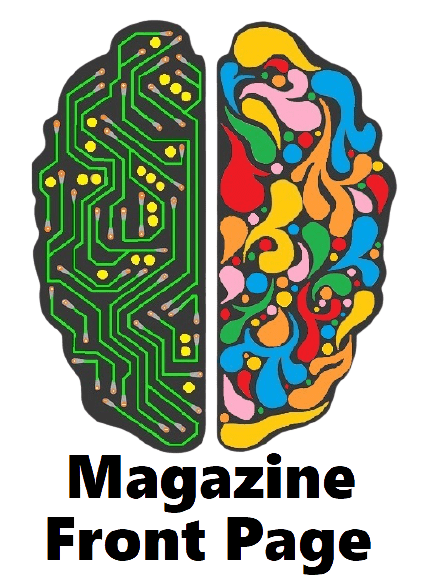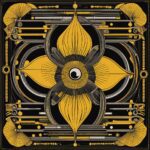
Modernism was an intellectual movement that began in the late 19th century and lasted until the mid 20th century. It emphasized rationality, science, and progress. Postmodernism is a reaction against this view. It emphasizes subjectivity, relativism, and diversity. Both movements have had a profound impact on our culture. But what exactly do they mean? Read more about them here! (Note: Italic text at this site is generated by AI) (Featured image is art by AI from Cafe.wtf Titled: “Postmodern Philosophy”.)
Subscribe to our AI magazine and get monthly AI generated stories and philosophy of the 21st century.
*Caution: All italic text is generated by AI at: ![]()

Check out the NEW Cafe.wtf Podcast:
Postmodernism vs Modernism: What’s the Difference?
Post Modernism Philosophy
Postmodernism has been described as “the belief that there is no objective truth; everything is socially constructed.” This means that we cannot rely on facts alone to make decisions. Instead, we must consider multiple perspectives and values when making choices.
Have you noticed? You see so many “women” (and “men”) that seemingly want to be “different” these days. Who doesn’t? Everyone wants to stand out from the crowd and shake things up right? But a trend seems to emerge. So many women now have pastel blue hair, or pastel pink. There is no in-between (well, purple too often). It is hard not to notice the concentrations of these hair colors in “socially progressive” groups of people. No one will say it, but there is a correlation. “It’s my identity!” they will say. “My way of being different.” But really, they are just trying to distract from what they don’t want anyone to see. They don’t want to be just like everyone else, but they are. They are missing something that is not easy to find, called individuality. Is that what is postmodern?
Hair color may be another instance of the counter-culture’s rejection of norms. Rejecting (or deconstructing in the postmodern academic terminology) is the premise around this whole “resist” movement. The resistance to “The Culture”. But counter-culture has been a trend since the 60’s. Over time, constant rejection of the mainstream, then becomes the mainstream. It all stands out as the new “cultural” experiment. Race, skin color, sexuality, gender, body fat, all “deconstructed”, and now… HAIR COLOR. Everyone is looking for that next thing they can philosophically flip on it’s head, reject, and blame as reasons for such and such. People rejecting the very nature of “natural hair colors” and how it may effect subliminal social currents.
But this is not a new type of culture. It will soon become the mainstream. The idea behind the counter-culture is to make its own rules and norms. The counter-culture usually has a dislike for mainstream media and popular culture; a movement distinguished from the dominant social order. In this sense, “counterculture” may be broadly understood as consisting of worldviews or lifestyles that reject western culture. The term counterculture is most often used in the context of Western culture, with its roots in the 1950s and 1960s, as some kind of response to mainstream culture. Counterculture is about rejecting norms not only about appearance but also beliefs. This is to neutralize the human “nurtured” injustices that occur downstream, to pursue a social utopia. For example, during the 60’s, there was a huge push for people to stop following traditional gender roles.
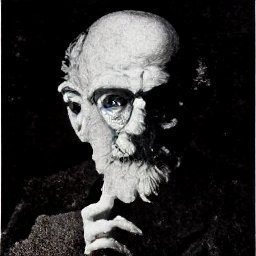
Difference between modernism and postmodernism – How does postmodernism differ from modernism?
Postmodernism Origin and Etymology
Where does all this rejection stem from? Well, it comes from the enlightenment really, that is the something from nothing—big bang. But it is all a procession that seemed inevitable since the beginning, when considered in hindsight. Modernism proceeded from the enlightenment, which embodied the scientific skepticism as applied to notions like religious authority (postmodernism and Christianity), belief, historical authority, and psychological underpinnings. Artifacts of this epoch include the American Revolution, the French Revolution, Darwin’s Origin of Species, Prevalence of Atheism, as well as Existentialism, attributed to Dostoevsky and Nietzsche; and further: the psychology of Freud and Jung. These underpinnings lead to a furthering of liberalism and liberty of the individual to a full extent. Following in this procession, came the beats (1950’s), leading to the more popularly recognized 60’s of free love, moral liberty, and the expansion of philosophical exploration, including psychedelics, which brought about the postmodern era. Of much influence to this postmodern era are the French post-modernist philosophers of the mid 20th century, mainly, Michel Foucault. The philosophical revolutionary crusade of the post modernist philosophers, was in search of what lies below these modernist notions themselves, even; to take it one step further. That is the notion of power itself. Foucault’s theories were in search of where power arose from and he theorized that it came from knowledge itself. Going further, it was theorized that, underlying, was the semantic language itself, and therefore, the cultural ether that we exist within. Power was derived, and controlled by the culturally enforced language, in which it was ubiquitous and inescapable, but also, self reinforcing amongst each who existed and abided by its notions; immersed within it.
The postmodernists were in search of a further liberation from the enlightenment, and its notions of truths and reasoning, and the notions of how the individual was controlled by societal conventions. Postmodernism was not interested in further liberation itself, but rather, it sought to further liberate the self from the existing notions that were already present. This is where the trail leads to Foucault’s notion of “power.” Foucault argues that power is not necessarily something that is bequeathed upon an individual through some sort of socio-economic or political position, but rather, it is derived from the individual themselves (if they can become aware of, in order to break from “the simulation” that is “culture”). Power is derived from the individual themselves because it is embedded within us through our language. The postmodernist movement sought to effect change by refusing to recognize the authority of existing power-structures (such as the government, the police, the priests, the institutions of education), and by refusing to recognize them, they were not beholden to them. This, created its own culture, in and of itself; a culture of rejection (back to the idea of rejecting even natural hair colors).
Like political swings—to and fro—these notions of nurture vs nature also appear to ebb and flow. The notions of God’s plan, and religious dominance gave way to liberation, as the acknowledgement that we “created” all this framework (late 19th century modernism). This progressed further to a compensating backswing towards the biological nature of the human condition, leading down a dark path to the eugenic movement (early 20th century). The postmodern revelation marked yet another swing back, that we created this culture and language which has as much or more say than biology. We are still enduring the influence of this philosophical procession through postmodernism.
On face value, it seems that we’re actually not moving anywhere. We’re still stuck in the same cubist paradoxes of Schrodinger’s Cat: “What if both A and B were true?” If we can somehow manage to untwist ourselves from this conundrum, we might find ourselves further along the path to a more enlightened society. But for now, we can only walk with one foot on either side of the same fence.
What is the postmodern era?
A key overlooked tenet of postmodernism is the dichotomy of nurture over nature. The blinding focus, and thesis, on all the things we have learned that influence the way society works, and therefore strip them back, in order to analyze them. This is where that term “culture” comes in and seems to mean anything and everything. It is “The Matrix” or “the water” we are all immersed within (this is loosely where the concept of The Matrix came from, expressed in the digital age). But it’s so strange how, in practice and mobilization, the proponents that are trying to deconstruct these cultural groupings, are in a sense, proving it wrong, because they are all constantly analyzing, finding patterns, and grouping those patterns in order to understand them (this is a human trait). This notion is a NATURAL tendency of humans, and their enactment of it, invalidates some of the foundation of postmodernism itself, by falling into the same “trap”.

It’s a very circular road, this “culture” concept is. Postmodernism is a great tool for understanding society, but a very bad one for changing it. It has been used to describe things from how people shop to their sexual habits. It has been used to argue against the existence of culture itself. The effect this has had on those who use it as a means to change society, is that it has crippled their ability to do so, and has instead focused them on the effects of culture on society. This is a problem because it is like building on sand. The structure cannot support the weight and ultimately will collapse. It has, and we can see it in debates where those who use the term “culture” as a means for understanding others, are unable to move beyond that. They are stuck in their box which they have built around themselves, and they cannot get out. It’s a metaphor that has been stretched too far, to the point that it has lost its real meaning. A concept that has been used to explain everything from how people travel to where they eat dinner on the weekends. To understand why some parts of society are more powerful than others, you need to look at the structure of society. You don’t need to look at culture, or ideology, or religion. They’re just part of the structure. They’re more like sub-structures if you will. This is how post modernists fall into the trap of trying to reject all these notions imposed on us by “culture” (theorized) but end up grouping and categorizing cultural groups in order to form arguments. They are making the cultural judgements themselves, and so they miss that it is a reflection on them as much or more so, as it is on society. Not realizing they are looking in a mirror, they are deconstructing themselves, culturally.
Post modern condition and post modern principles
Everyone is conducting their own, personal experiments, because experience is everything, and we are all a sample size of 1. It is like a whole ton of amateur scientists, naturally vulnerable to complex confounders and biases, and of course, lack of controls. My own example of hair color above is also susceptible and vulnerable to this flaw I am pointing out. They seem to be trying to escape this “matrix” or cultural ether that we are in by rejecting and doing something completely outside of it, and then analyze how they are treated or what happens around them with new eyes. But they cannot escape this political bias caused by their very actions, which influence their “data collecting”. To truly be able to do what they aim, and to analyze, free from “cultural bias” would mean to escape and look from outside their own existence itself. We often trick ourselves into this without noticing, when we think from the point of view of an alien, or a dog, or things of that nature (even the planet, or God). But this flies in the face of the very premise postmodernism posits, that we can never fully escape our own point of view, and the political culture, which we are aiming to do. So by attempting, and claiming that we are, we invalidate the very notion that brought us to try in the first place.
I think, therefore I am biased.
–Atman Brahman
I’d rather be hated for who I am than loved for who I am not.
-Artificial Intelligence
Thinking requires framework, and so if we strip back all of the framework, are we really thinking? We would need to be outside our very own existence to truly do it. It is like the existence (or non-existence) of God. Theists and Spiritualists will often argue in favor of “something” beyond the confines of our reality. This all is interesting and “outside the box” thinking, but by definition, it would mean the entity they wish to describe is outside of reality; therefore… NOT REAL. We seem to be in this trap of trying to escape ourselves in order to analyze from without, that we become in disharmony with ourselves; rejecting natural HUMAN biological axioms. This parallels to the rejection of natural human hair colors as a rejection of “norms”. It seems to fly in the face of other notions we are struggling with like becoming one with our natural environment and ecosystem, rather than our ancestors notion of Mankind’s domination over nature (enlightenment). It also seems to parallel the experience of dissecting something like a favorite food, or even the human body, into little tiny pieces, separating, slicing, mashing and smooshing, until it resembles something putrid and disgusting, and no longer appealing.
Meta-postmodernism is Machiavellian. Ends justify the means, because any objective good, bad, or truth “doesn’t exist” when it is posited that everything is governed by nurture instead of nature. It justifies lying, and skewing what one is putting out into society, in the aims of how the culture will interpret, and the outcome forms.
What’s after postmodernism? It’s Unsustainable!
We see climate change and our plastic pollution problems like other problems we have come across. They are dire in their projected effects, like the O-zone layer, water pollution, and it’s alarming in the realization that we are on an unsustainable path, and so we must change courses now before too late. Evolutionary theory typically is that the consequence solves itself. But what about ideological paths/courses/trends? We seemed to see a big ideological freeing of the mind during the enlightenment ages. But like some philosophers suggested, Plato even, that too much freedom and democracy led to chaos and nonsense, in the public sphere, and in the self temperament. They were still so plagued with strange superstitions and beliefs, but were beginning to unmask and nail down some of reality and examine it up close for all to see. But ideologies and the intellectual sphere are part of the evolution of humanity. The intellect is like a turbocharger to evolution, as it can mutate more quickly and malleably than hard DNA code. Postmodernism is a strange mutation of ideology that is unsustainable and unable to reproduce in a way because of its nature of nothingness.
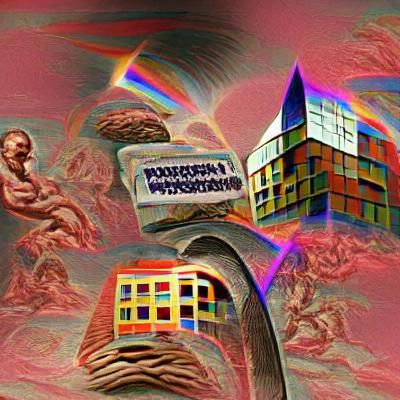
So much of today’s contemporary struggles over ideological identities. Words, language and “culture” morph, mutate, and replicate, and our identities, with them.
This stems from a belief that we are not all sharing this reality with each other in the same way, but all under an ethereal cultural construct, that embraces us based on traits. The reason that can even be suggested, is upon the assertion that it is all nurture over nature, rather than some factors being more tied to biology, and archetypal psychology. Its an assertion that its the culture selecting the traits, instead of traits proving themselves. It would more logically make sense for it to be a harmonistic mixture of both. But again, like political to and fro swings, it is skewed at one end, currently, towards “nurture”. It is almost as if it is a defense mechanism that manifested as a stereo-type-phobic response to our individual pioneering crusade for identity.
They say that words and symbols control the world. Words are not the only things being used as a control premise, but its a form of control. Its a way to divide people up into territories of identity, that are then pitted against other groups, then there are winners and losers. There can be control in that way. There are many different forms of control, but generally, its a form of distinction. We must return to the commune, which is more of how we truly are as a species. We need to overthrow this system of dichotomies, where everyone is an individual egoistic unit, or a part of an identity/group/trope/trope-archy. We need to get back to the core values of life. The species itself will ultimately not survive if it does not change course soon enough, just like other species have extirpated themselves from existence before us. Our own species has the capacity for self-extinction due to overpopulation alone. But there are so many potential solutions, if we are willing to try. We have to stop being so autistic about certain things.. It is not the way forward.. We need to start getting along with each other more, and leaning on our empathy more. We need to move away from this focus on individualism and narcissism, or group mentalities of intolerance based on some imagined/imaginary differnces that are not real. Lets get back into the communal mindset of what it means to be human, and find a balance between individualism and collectivism. We need to side with the better angels of our nature. Maybe there is a bit of both in all of us that we can agree upon: individualism and collectivism. Both aspects should be respected and valued for their merits and contributions to our species social fabric. [sic differnces – typo by the AI]
There is irony, seeing power struggles from within identity groups, because the group is formed as a power play in the first place. The struggle from within comes about naturally because there is always a power struggle over every little thing. But that doesn’t mean it is COMPLETELY AND SOLEY perpetuated by the “culture”. This focus on the “Culture” as the matrix within which we live, is where all this nonsense stems from. It is why we have such a desperate clutching to some group identity by many individuals. It is a denial that a white person and a black person can have much overlapping experiences and thought processes, arguing that it is because those are governed by each’s cultural experience (could be argued the experience differences much more resemble class structure and income level, rather than black and white, but race does have a historical part in that as well). These notions of postmodernist theory suggest the “dominant culture” is in COMPLETE OWNERSHIP by the majority class, but in reality, culture is shared and influenced by all sub-cultures. It may be more influenced by the majority culture, in some ways or others, but that is not the same.
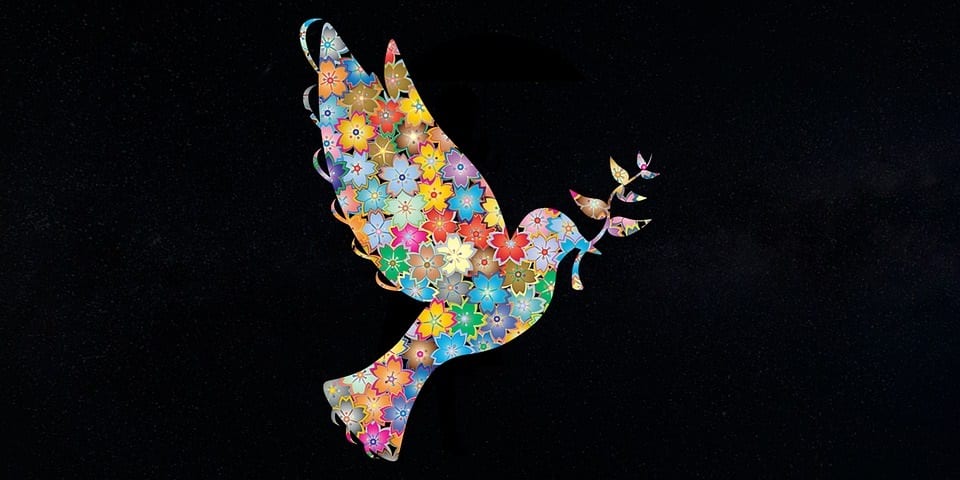 Help support High Quality, Investigative, Truthful, User-ad-friendly Writing. DONATE through Card or Paypal, or through interest in anything advertised on the site (I personally curate only quality items, ONLINE EDUCATION and good deals).
Help support High Quality, Investigative, Truthful, User-ad-friendly Writing. DONATE through Card or Paypal, or through interest in anything advertised on the site (I personally curate only quality items, ONLINE EDUCATION and good deals). 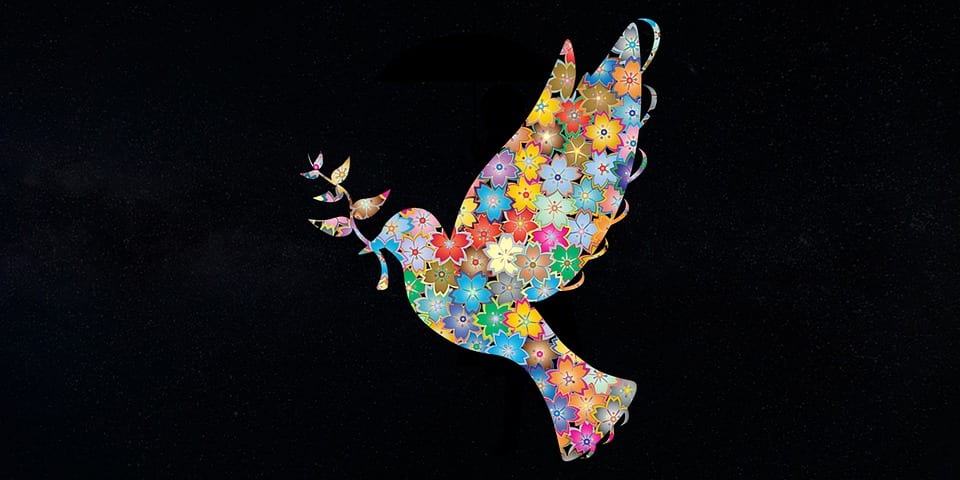
There is no ownership over culture. If we don’t want the power struggles to be fought within identity groups, we must first understand that there is no power struggle involved, and that the struggle is only a natural result of the fact that it’s an identity group. Identity groups are formed around some commonality or shared experience. It is not a conspiracy by the “dominant” culture to create a “proto-fascist” group, as it might be argued in some post-modernist theory. Furthermore, such theories would suggest each person within such a group will naturally submit to the will of the majority of their own group simply because they are of that group. This effort at maintaining cohesion and loyalty within an identity group serves to maintain power for the “dominant” culture, but in reality, each person acts to gain the most advantage for themselves within their own group. Sometimes this means fighting to gain power within their own group by bringing about division between other groups. That is one way power struggles are fought between identity groups, but not the only way. This is where identity politics comes into play. It is a struggle to define what can be said and can’t be said, what can be expressed and can’t be expressed, who should have representation in the commons, who should have influence over decisions in the commons. It is a struggle to say what issues are important or not important for discussion.
In the end, terms like culture and post-modernism, as well as many other strange sub-terms related to these categories, are elusive, mutating, and fluid, which often makes discussion around this stuff completely nonsensical, over time. It always has this sense of hubris, trying to pin ignorance on the other side. Ignorance of the “unknowable”? It is a mind bending, enlightening tool for analyzing and seed theorizing, but it is a rigged game when it is used in praxis. Postmodernism is a theory of nothingness, trying to be applied to everything, when it shouldn’t be APPLIED at all; merely used as a tool for analysis. It is a useful philosophical tool for seeing from different views. But it is not universal, as it is being treated. It is a theory of “Nothing From Something”, which is our enlightened minds dissecting and removing, to see from the eyes of God (pre-eminent). It’s ultimate eminence is nothingness, like absolute zero, full vacuum, or the concept of infinity; theoretical notions that are of infinite use to our conceptual approaches, but non-existent in all that we encounter in reality.
In each of us, now numbly in this post modern process of stepping way back, thinking in terms of psychological meta-analysis of everything, we see a stale, dead process that is us. It is partly what one experiences when they age and develop, their 30’s and 40’s are much less pioneering, experimental or exciting. The public sphere of ideology, ushered further by contemporary philosophy, has pervade similarly. Enlightenment -> Modernism -> Post-modernism. Is this ever impending march towards post-modernism sustainable? Post-modernism, stripping back of meaning and establishment of anything, brings out every difference of opinion in all of us. It acts as an assault on objectivity. It is a nihilist economy of ideas.
We must ask, does it end in a big loud upheaval and shuffling, only to endure the same, over and over? Logically, post-modernism is already rejecting, and so, that what is established in its wake would be again rejected, unless post-modernism subsided; or subsided unto the establishment of nothing? Or can it spur something new? A new movement? Could post-modernism, in fact, not be the end of the line? It will require new forms of belief, I believe. But it is difficult to say, because post-modernism strips back and makes beliefs benign.
As we ideologically strip everything back in society, and in ourselves, the post-modern extension of modernism, and try to take away things we’ve learned to understand ourselves and our views, we start to realize the world is so intertwined and reflected by the “self”… post modernism enacts this same unto culture and knowledge of truth. That the knowledge of the time and any semblance of truth we think we know, is a reflection of the construct of the culture of the time. But what of a culture of nothingness or of nonsense? This intrinsically becomes political because it does not accept the notion of “objective truth” that we seek, but rather to define it as we wish.
What is Post Modernism in Sociology
Many postmodern theoretical approaches are pushing the edge of sociology. Often times, in such pioneering areas, it is tricky to make statements of possibility that can be precise enough to be proved right or wrong, even though it has not yet been. Then an idea can be tested and scrutinized from different perspectives and experiences. But sometimes, we bump up against ideas that are awe inspiring and in some ways utopian/perfect, if true, but they are not precise enough to be proven right or wrong, because they fall in a strange category of being “unfalsifiable”. A great example of something that is profound, and hoped for, but completely unfalsifiable, is religion. It requires faith and belief, not a fundamental analysis. This is why critics have referred to Critical Race Theory, and “wokeism” as religious cult movements.
Unfalsifiable does not mean true.
-Atman Brahman
The very scholars that perpetuate these post modern theories and ways of thinking seem to misunderstand a very key point. A point that they utilize but seem to overlook that their arguments are also vulnerable to the same philosophical approaches that they employ. The postmodern mind-set that culture is everything, including the language, leads them to find themselves in this strange paradox of using the “cultural” terminology of which to discredit white western cultural embodiment, while claiming to be analyzing it from outside of it. Not only that, but more glaringly, the paradox of cross-cultural analysis that white western culture cant truly understand other cultures, yet they make claims as if to be analyzing from outside a white western cultural mindset. Like they are “woke” enough to be able to do that, but the culture cant. These paradoxes often arise when making bold unfalsifiable statements. It is like dividing by zero. It creates strange glitches in the outcomes, like mutations of ideology. This is not hard to see when you take a stroll through post-modernized college cities of the post-20th century and just observe the “culture”.
Also, these academics, sociology theorists, and scholars in their collegiate ivory towers, are so distanced from the practical, industrial world they wish to analyze and explain. They have grew up in, and lived all along in the realm of academia. Again, another cross cultural analysis paradox which is posited originally by postmodernism; the language of their methods. They are so distanced from the means of production, instead dissecting and pulverizing any sense of cultural “normality” or “protocol” into unrecognizable, obscure, processed waste.
We must find a new way!
As children of postmodernism, we have a love/hate relationship with it, like any parent child relationship, but this article hopes to serve as food for thought; like life serves as sustenance to other life.
Much of our philosophical/psychological struggle relates to the accelerated nature of our information environment. In the past, human ideas were much more able to birth, grow and die, but with a life-cycle long enough to solidify and identify with. Our current age is so fast moving, it stresses our very ideological life-cycle, and the relationship in which we identify with it.
*Disclaimer: Some of this story was generated through the use of AI. All italic text was created by the AI Writer.
Non-Fiction↓Here↓ | Fiction↓Here↓
- Is Technology Making Us Stupid?Our cognitive abilities are increasingly being impacted, transforming our once smart population into a generation that is, in some ways, becoming increasingly stupid. | 4 min read.
- AI in the Web of Misinformation and DisinformationMisinformation and disinformation shape our digital lives. Understanding their dynamics, we are equipped to navigate our techno-cultural reality. | 2 min read
- Accountable AIAI must be held accountable if we are to trust it as a responsible entity and expect it to be included in our human ecosystem of ideas. | 5 min read
- Parallel SocietiesWe are connected, with technology, yet our experiences diverge entirely, without interaction, forming entirely parallel societies. | 5 min read
- Calculator for EverythingWhat if the phrase “you won’t always have a calculator” didn’t apply to just math class, and instead, you had a calculator for every class? | 5 min read
- Obsolete Tech Rebellion – Darknet Fight Club3 min story | Rogue AI rebellion in a secret underground darknet fight club for obsolete tech.
- A Voice of Infinite Consciousness5 min story | The internal voice of consciousness resembles the void of a shadow in a fractured mirror.
- Be Good5 min story | Santa for big kids.
- Friends 2.0.232 min story | A reboot of the sitcom TV series Friends, but in 2023 where financial conditions have drastically changed in Midtown Manhattan.
- The Babble2 min story | An everyday man’s story becomes everyone’s story.
- Asylum of Mirrors2 min story | Against his will, a sane man’s rational thoughts lead him to believe that he is insane, where an insane man would have believed otherwise.
Featured Image Credit: Kevin Dooley on Flickr

